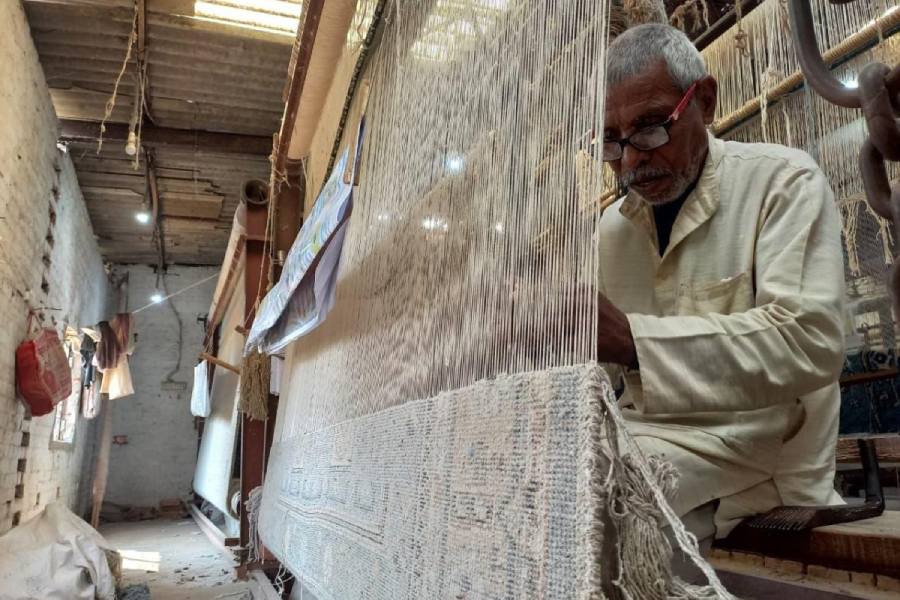Many carpet traders in Bhadohi and Varanasi have rued that sections of young entrepreneurs are dealing with small-time retailers in the US, the biggest market for the product, instead of the traditional wholesalers whose payment systems are stable and trustworthy.
"There are some manufacturers who have enough capital to deal in cash only. They don't have any liability under Section 43B(h) of the Income Tax Act, which is good for them," a carpet manufacturer who did not wish to be identified said. The section mandates payments to micro and small enterprises within 15 to 45 days to qualify for tax deductions.
"The retailers (small importers in America and Europe) do not have a big clientele and they pay the manufacturers only when the products are sold. This is the reason a huge amount of the money spent in the production cycle by mid-level manufacturers is stuck. The traditional wholesalers used to give better results by selling the products faster. The young generation broke this chain and harmed the market," he said.
Such practices have only worsened the condition of the carpet manufacturers of Bhadohi and Varanasi, who have run up an inventory of unsold products worth ₹6,000 crore with demand from the US drying up because of President Donald Trump's steep tariffs.
These two regions of Uttar Pradesh, which account for much of the country's handmade carpet production, export 98 per cent of their produce. More than 60 per cent of the exports are to the US.
The carpet manufacturer complained that new and young entrepreneurs visiting the US and other countries in search of buyers hurriedly strike deals with retailers instead of wholesalers, whose payment system is stable and trustworthy.
"These young exporters who are in a hurry to prove that they can make more money than their parents in the carpet sector go for higher profits at any cost. Their money is currently stuck in the American market. We had a system a few decades ago when we would send our products to Germany, from where they would go to some other country where they would be sold as German products.
"Some young and inexperienced exporters are trying to revive that system under the illusion that the US will buy carpets without properly verifying the country of origin. Trade practices have evolved and there is much more intense scrutiny now. Experienced manufacturers don't believe in such shortcuts,” he said.
Vijay Kapoor, a carpet manufacturer in Varanasi, appeared to suggest that the government's policies should be more exporter-friendly.
"The Indian government doesn’t advertise its products in other countries unlike the Chinese, who do so regularly. The Chinese government is directly involved in exports," he said.
“I also believe that the government should plan incentives in a way that a portion of it goes to the weavers (workers),” Kapoor added.
“I stopped working on credit 20 years ago. I deal in pre-payments. I produce carpets when I receive orders. I take the entire payment before shipping my products to the US or any other country. It took me years to develop this system. I focus on quality because the customers look for good products. I also make friends with my workers, including weavers, for better mutual coordination and smooth production," he said.
Aslam Mahboob, a board member of the Carpet Export Promotion Council (CEPC), said: “A section of manufacturers may be happy with the current situation as they may be having a different system of agreement with the customers or they have the network to explore the European market quickly. Some may also be looking for an opportunity in the crisis. They may be 40 per cent of the total exporters. But this doesn’t mean that the carpet industry and the workers associated with it will not suffer because of the US tariffs.”
“We believe the only solution to the deadlock is a bailout package from the government for the time being so that we can continue our work and retain our workers on the rolls,” he said.










